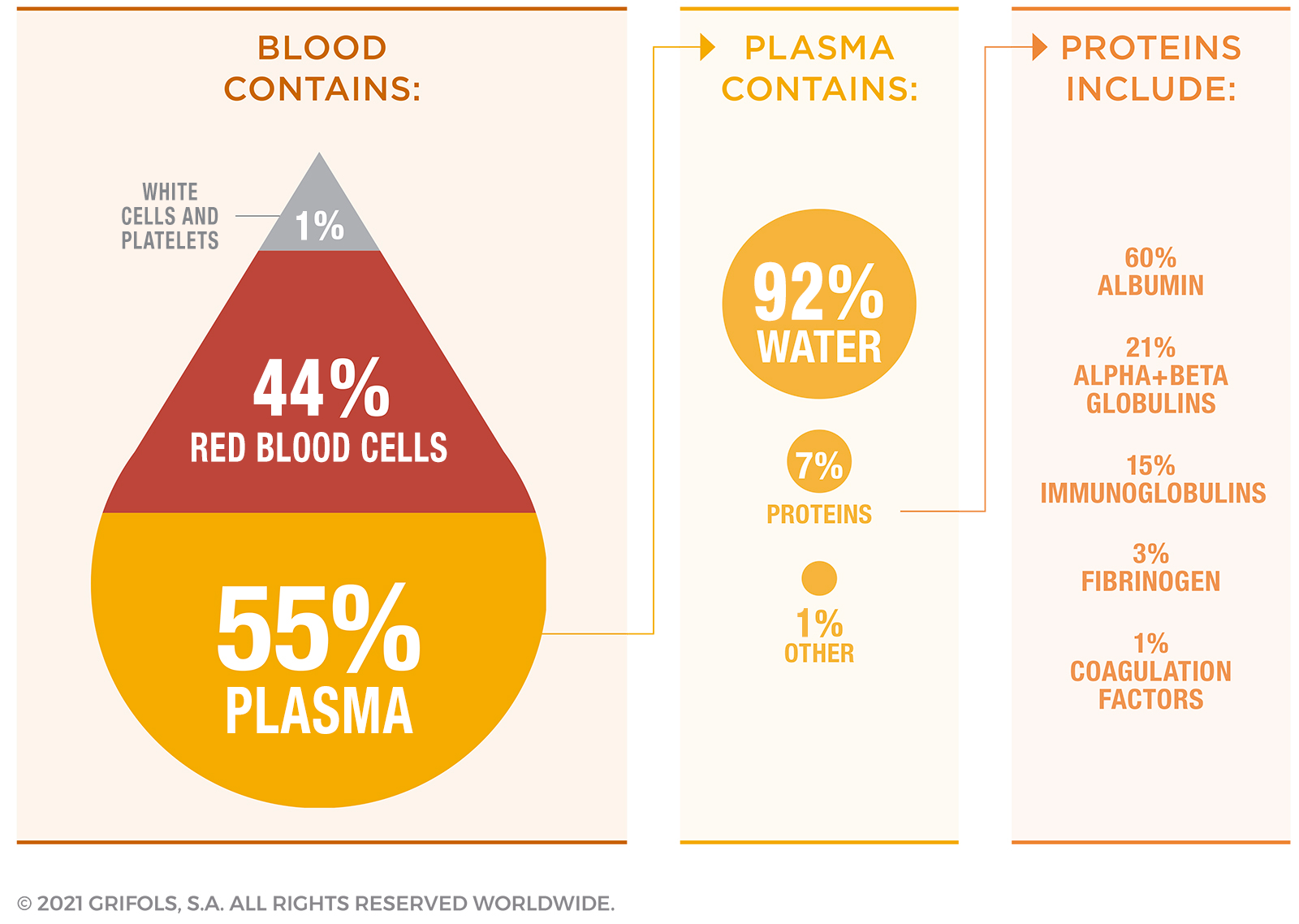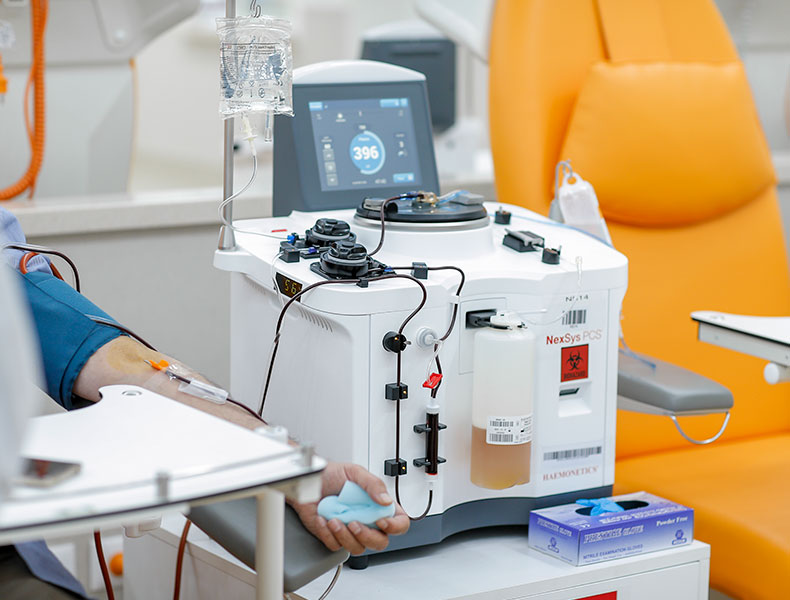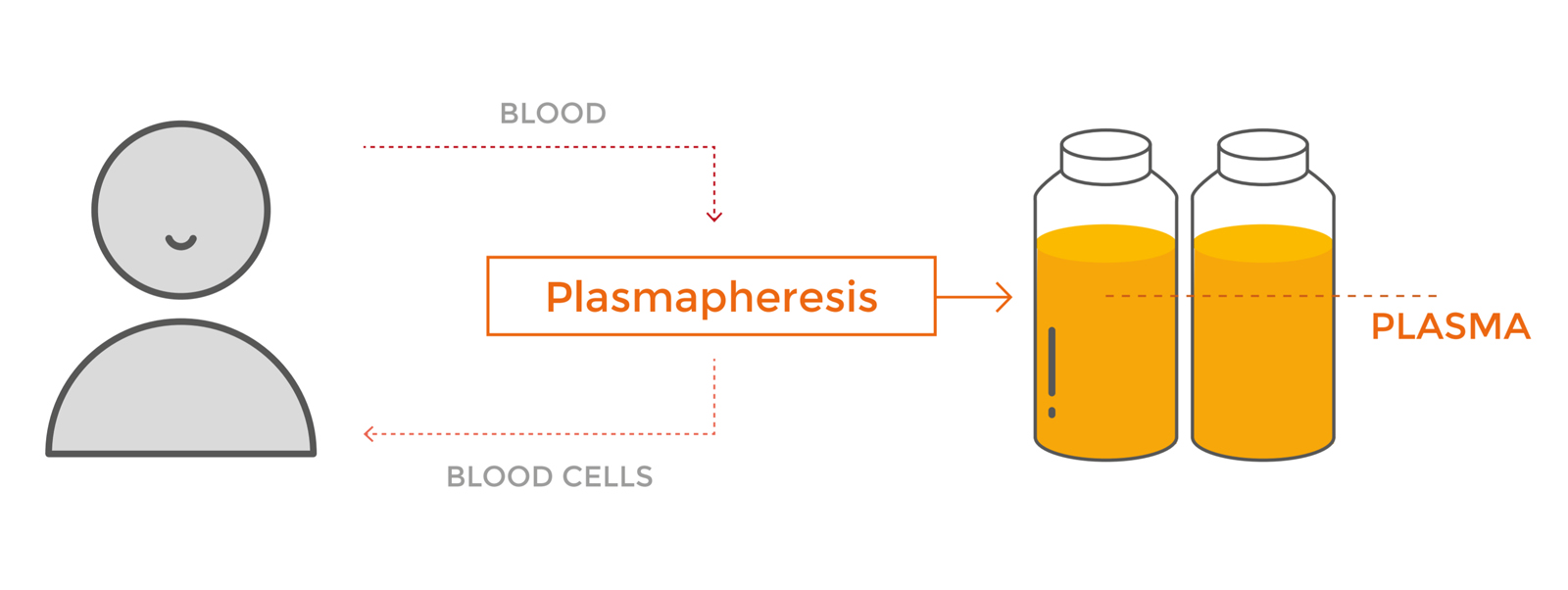What is plasma
Gold-colored plasma is the liquid part of blood and represents about 55% of total blood volume. It contains essential proteins responsible for important life functions, such as immunity and blood coagulation.

Plasma-derived medicines are often the only possible treatment for many diseases. They include immunoglobulins for primary and secondary immunodeficiencies and autoimmune disorders, coagulation factors for bleeding disorders, and alpha-1 proteinase inhibitors to treat lung and liver disease. Grifols Egypt has proudly achieved 100% self-sufficiency in immunoglobulins.
Because plasma is a naturally occurring material – it’s in our body – patients depend on the generosity of healthy volunteer donors for plasma-derived therapies. Long production cycles including rigorous quality and safety checks can take up to a year from donation to manufacturing a medicine.
Large volumes are needed. As many as 1,200 donations are required to treat just one patient with hemophilia, a bleeding disorder, during a year.

Most plasma is obtained through a process known as plasmapheresis, a technique developed by Grifols in 1951 through which plasma is separated from the other blood components, which are then reinfused into the donor.

Plasma proteins involved in treating diseases:
- Albumin: For cardiac surgery, severe infections and many diseases including renal and liver disease; also, in emergency and surgical medicine to treat shock and severe burns.
- IVIG: Immunodeficiencies, both primary and secondary, as well as neurological disorders.
- Factor VIII: Hemophilia.